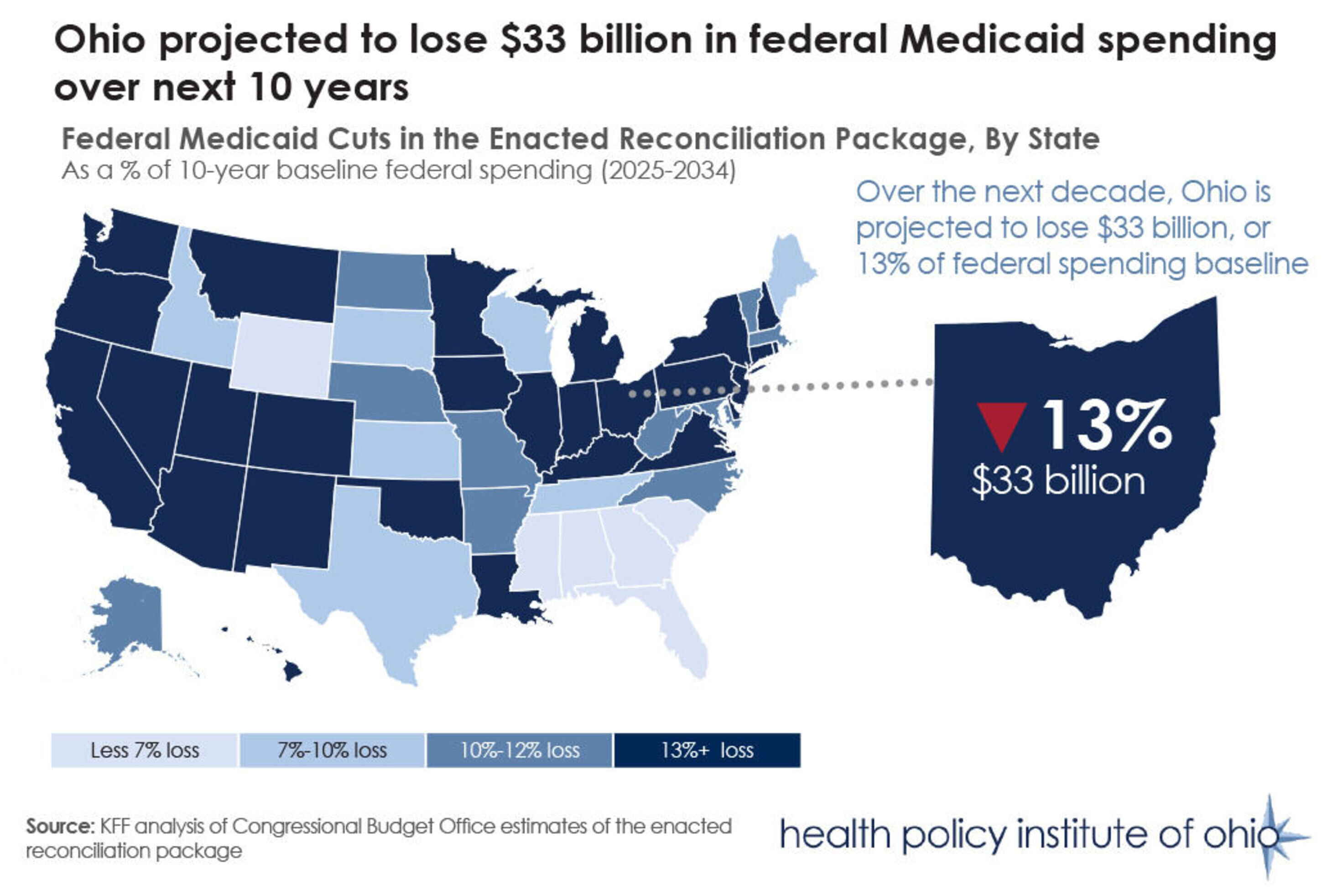- Posted
- August 22, 2025
HPIO releases first in a series of fact sheets on healthcare access and affordability in Ohio

The Health Policy Institute of Ohio has released a new fact sheet that outlines major federal and Ohio healthcare access and affordability policy changes.
The document provides a high-level summary of several provisions of HR 1, the federal reconciliation bill sometimes referred to as the “Big Beautiful Bill,” along with information about related changes contained in HB 96, the state biennial budget bill.
Among many other provisions, these pieces of legislation contain Medicaid and health insurance policy changes. For example, according to estimates from KFF, Ohio is expected to lose more than $33 billion dollars in federal Medicaid funding compared to baseline over the next decade as a result of HR 1, as illustrated above.
In the coming months, HPIO plans to release several briefs that will explore how these changes are likely to impact healthcare affordability in Ohio. Many of the one in four Ohioans (about 3 million people) who have health coverage through Ohio’s Medicaid program and the more than 580,000 Ohioans who have health insurance obtained through the federal marketplace are expected to experience the most significant impacts of these changes.
HPIO’s 2025 Health Policy Summit will take place on Thursday, October 9, 2025, and will feature a plenary session focused on HR1. The session will feature:
- Jennifer Tolbert, MPH, MSW, Director of State Health Policy and Data and Deputy Director Program on Medicaid & Uninsured, KFF
- Adam Searing, JD, MPH, Associate Professor, Georgetown University McCourt School of Public Policy, Center for Children and Families
Click here for more information about the Summit and to register.
